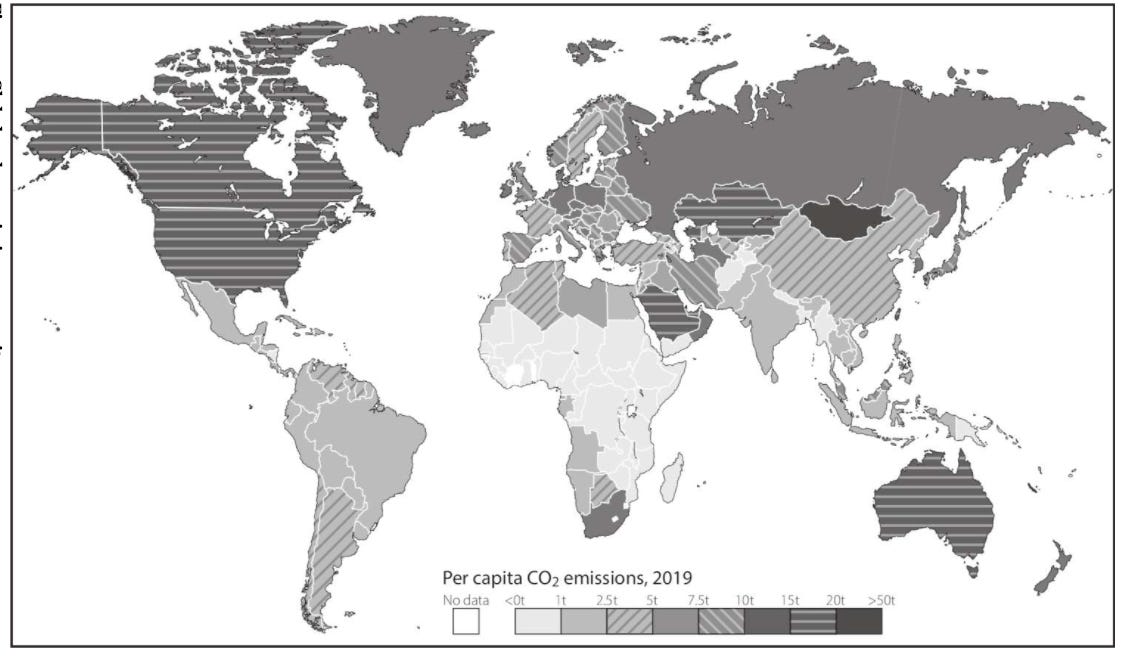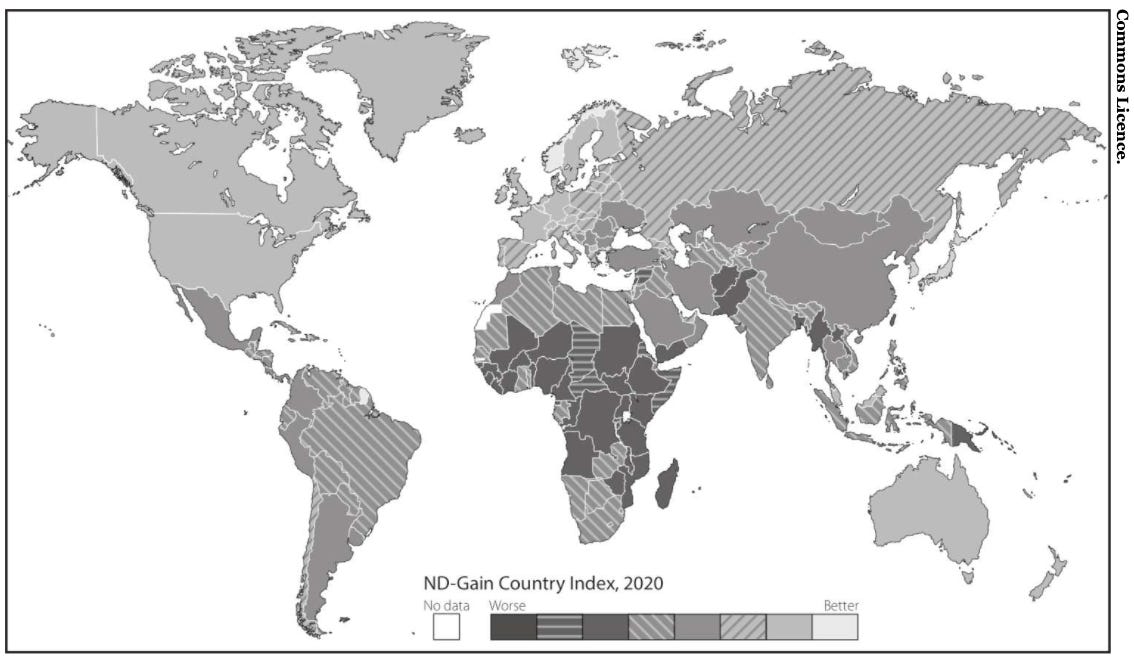Climate Disaster Is Already Here…for Some
Part II: Climate Inequality & Indifference
🤓 Bite-Sized Knurd: We’ve been told by Western, mostly white, nations that nothing can be done on climate. But the real reason has more to do with economic incentives than will power to change.
Read on for more…
It’s officially April which means Earth Day is around the corner so we’re talking climate this month!
In our climate series, we’ve already talked about the empathy gap and why some are not as concerned about climate. What we didn’t talk about was the dramatic differences in the impact of climate change on various communities.
I recently read the book Climate Change is Racist. While the title itself will probably turn some people off, it’s an extremely important read in our time (plus it’s super digestible - only 128 pages!).
But the most crucial piece of the book happened before the Introduction. It was these two images:


Let’s stop and really look at these images.
- The 1st image illustrates the level of global carbon emission generated per capita in each country.
- The 2nd shows which countries are most vulnerable to climate change.
Notice something?
The maps are directly inverted from each other. They’re the opposite.
Where’s the Incentive to Change?
To understand climate inaction from our governments and economies, you just have to look at these two maps.
The countries that have the greatest responsibility to fix the climate crisis also will be impacted the least. These same countries economically benefit from fossil fuels.
They have become the wealthiest nations in the world not in spite, but because of climate pollution.
Don’t Forget About the Historical Context
These maps only show part of the picture: the current view. It doesn’t illustrate the centuries when Western, predominantly white, countries were spewing CO2 as they built up their industrial capacity, while the global south was being colonized by these same countries and unable to modernize.
Using India as an example, the British Empire extracted cotton, sugar, tea, coffee, and wheat from Indian land to ship it back to England to produce goods. The British Empire then resold those goods back to the Indian people at a mark up while banning India from developing any manufacturing capacity themselves. In fact, it’s estimated that Britain stole $45 trillion from India.
(I won’t go into the obvious historical economic inequality and manipulation of markets to keep Western nations wealthy and others reliant on Western nations, but I’d say it’s pretty important context)
Now the global south is suffering from climate disaster (extreme heat, droughts, wildfires, famines, tsunamis, etc.) as western nations sit back and continue to invest in fossil fuels.
What Can Be Done?
While individual citizens don’t have complete power, we can make our governments and companies deeply uncomfortable to put on the pressure.
- Spread the Word: Most people are not truly aware of the disasters of the climate crisis because they are fed stories through the media without the full context. The more people are aware, the better.
Think Before You Spend: I say this for two reasons:
a) The less we spend on things, the less we will need to trash, and the less that needs to be extracted from the earth
b) Our economic power is greater than we know. Think about your spending choices and if they support companies that are negatively impacting the planet.
- Vote: This one is obvious, but the Midterm elections are coming up in November in the US. Gen Z and Millennials are poised to be the largest voting bloc by 2028. Younger generations care about climate and have a real chance to dramatically influence their local, state, and national elections if we band together and vote. It’s only our and the planet’s future at stake. No biggie. Are you registered to vote?
Next Up
the roots of change media ecosystem Newsletter
Join the newsletter to receive the latest updates in your inbox.



